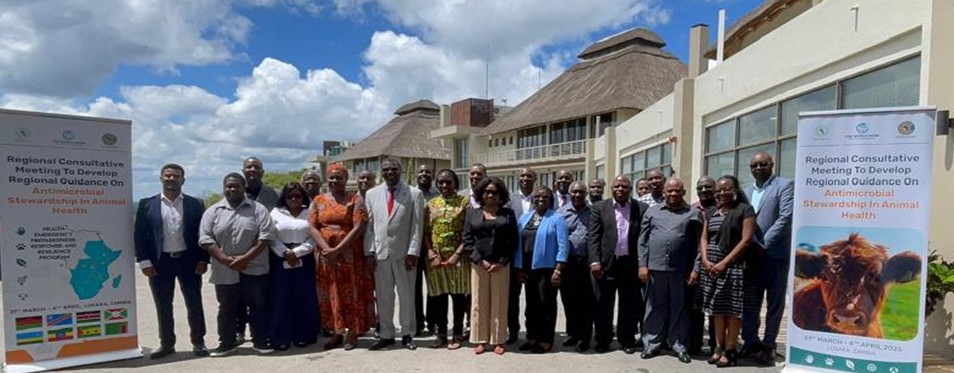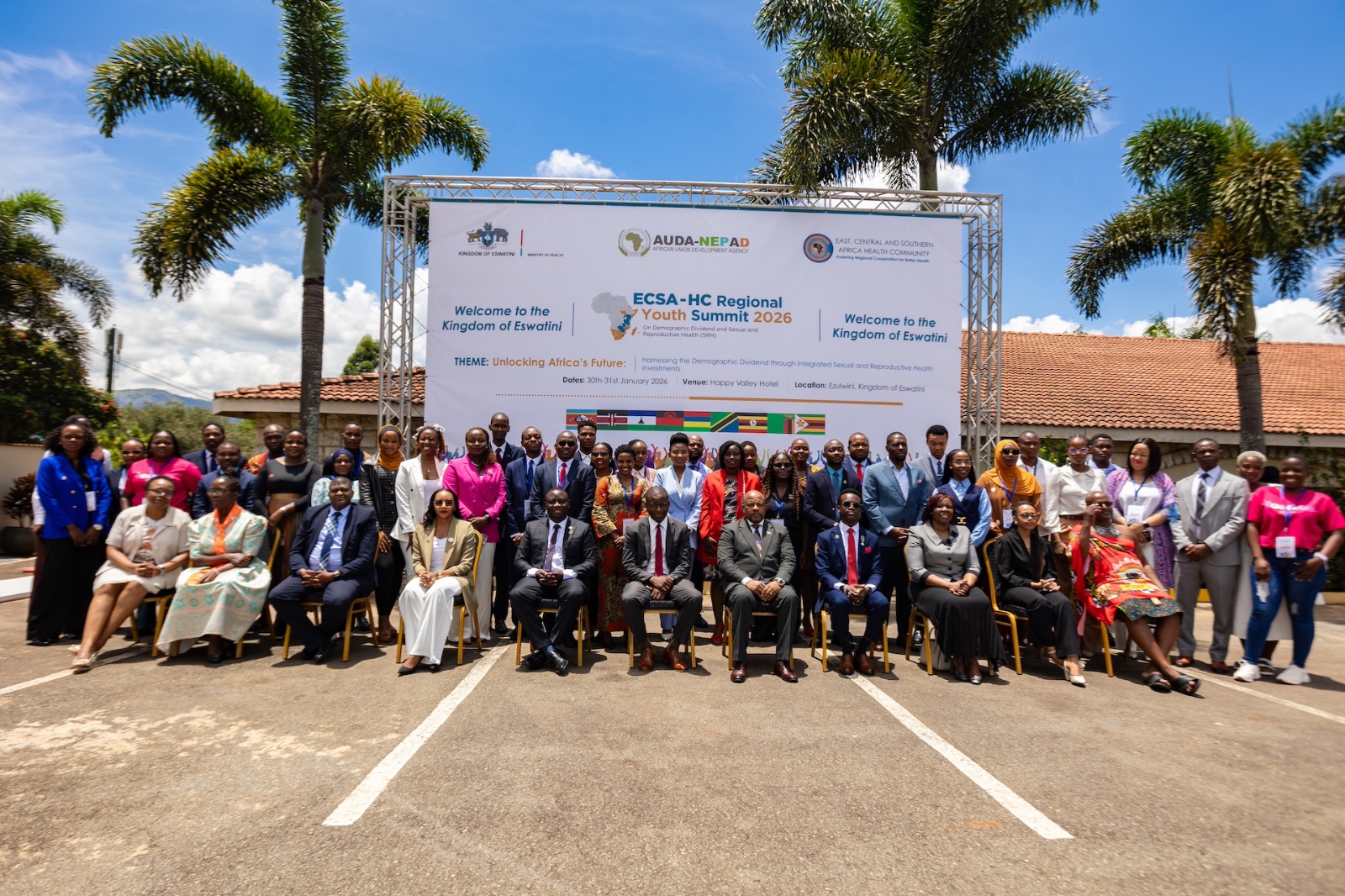ECSA-HC has successfully concluded the 76th Health Ministers Conference (3–5 Feb 2026) in Ezulwini, Kingdom…
ECSA-HC Supports Development of Regional Guidance for Implementing Antimicrobial Stewardship in Animal Health

Antimicrobial resistance (AMR) is a significant public health and economic challenge in the East, Central, and Southern Africa (ECSA) region. The misuse and overuse of antimicrobials in animal health contribute to the emergence and spread of resistant pathogens, posing risks to both animal and human health. Addressing AMR requires a One Health approach, integrating human, animal, and environmental health interventions to promote responsible antimicrobial use and stewardship.
Recognizing the critical need for harmonized regional strategies, the ECSA Health Community (ECSA-HC) through the World Bank funded Health Emergency and Preparedness Response and Resilience Program supported the development of Regional Guidance for Implementing Antimicrobial Stewardship (AMS) in Animal Health. A Consultative workshop bringing together 6 countries Burundi, Ethiopia, Kenya, Malawi, Rwanda and Zambia with representatives from both Human and Animal health from governments, academia, international organizations represented by ReAct Africa, FAO and WHO, was held in Lusaka, Zambia from the 31st March to 4th April 2025.
The meeting was presided over by the Director General, Zambia National Public Health Institute Dr. Roma Chilenga. This is a crucial step in strengthening AMR containment efforts in the region. By promoting responsible antimicrobial use, improving surveillance systems, and enhancing policy coordination, this guidance will contribute to sustainable animal health practices and food security while safeguarding public health through the reduction of AMR.
The FAO Country Representative for Zambia, Ms. Suze Filippini lauded the effort and mentioned that the guidance collaboratively developed and implemented will support countries to strengthen policies, regulations, and best practices to ensure the prudent use of antimicrobials in livestock, aquaculture, and companion animals, through a harmonized approach for AMS implementation across the countries.


